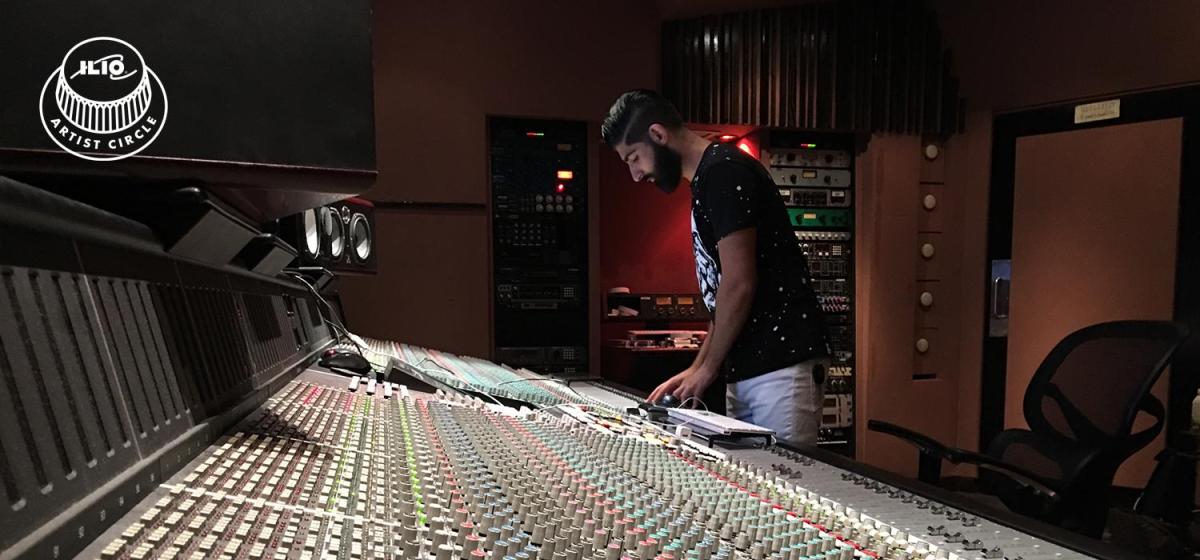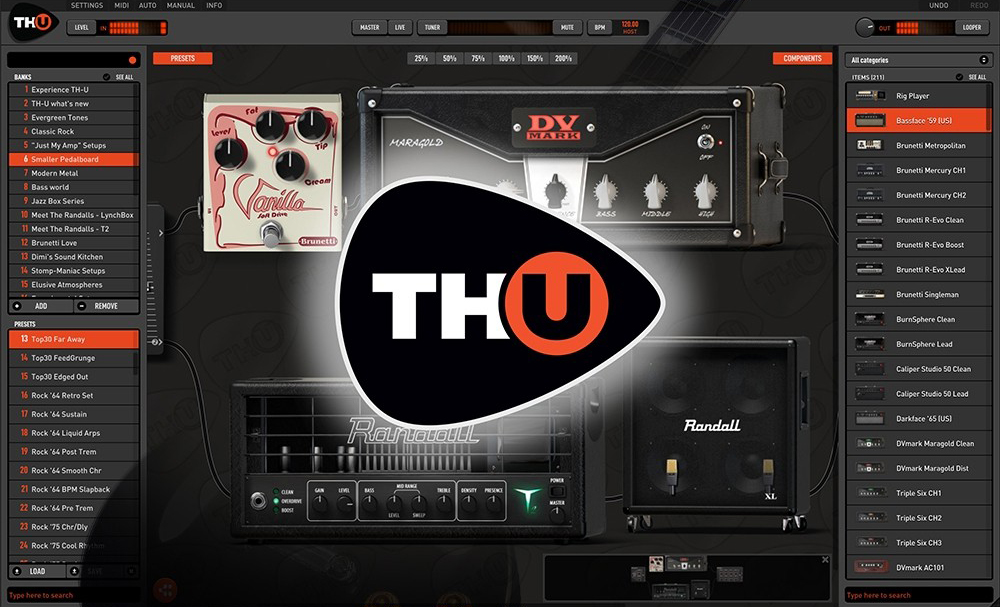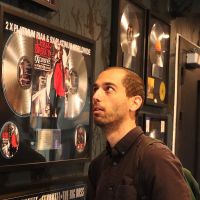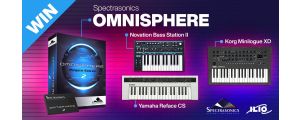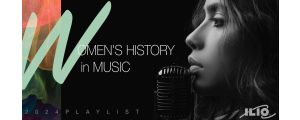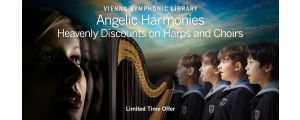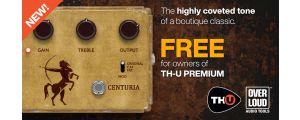Mixing His Way to the Top
He didn't always want to be a mixer. His early music career was focused more on production, but his natural interest in technology and the thrill of creating tracks drove him to pursue and embrace the art of mixing. In this interview, we'll find out how Narek Ambar got to where he is, what motivates him, and we'll learn about that certain plugin that caused his path to cross with ours at ILIO.
Narek Ambar has some good ears. Extraordinarily good ones, actually. But he has trained for this—spending years learning how to pick out certain frequency ranges while tweaking knobs and faders. At around age 17 or 18 he was always in the studio with his friends and would come home as late as 5 AM. In the past several years Narek Ambar's hard work has been rewarded, his mixing skills in demand by some of the hottest LA talent, such as Jason Derulo, Joyner Lucas, Will Smith, G-Eazy, Swae Lee, Lil Baby, Ne-Yo, and Rick Ross to name a few. To what does he owe his success? Hard work, extremely late nights, mentors, relentless networking and dedication to his craft.
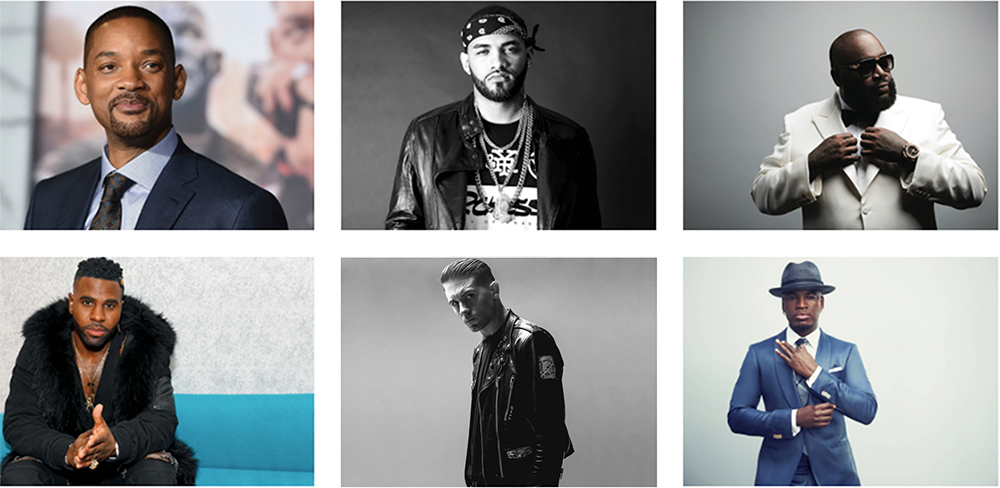
Changing Course
It's not common for a producer to shift gears and pursue a mixing career. It can also be argued that mixers typically don't enjoy the publicity, recognition, or stardom producers generally do. But Narek has always been driven by crafting great sound, and that focus has given him a unique edge in a highly competitive industry.
It's important to understand how the hip hop and R&B machinery works. When a high-profile album is put together or when an important artist is featured on a record, that artist's handlers will search for a team. Meanwhile, the "suits" (executives, labels, marketers) will typically have a go-to mixer for their projects. Narek's reputation, coupled with his willingness to network, has put him on a short list of names these handlers and power brokers go to, which has put Narek on a plethora of A-list records. Of course he works with independent artists as well, but much of his top-tier work comes from the industry movers, demonstrating the importance of networking in addition to mastering one's craft.
One thing that resonated with this interviewer is that Narek Ambar's story strikes a resounding chord with a lot of millennials out there. The 20 to 35 year olds seeking purpose, navigating an ever changing career landscape and above all, trying to figure out what to do with their lives. As a millennial myself, I'm all too familiar with the haunting questions that come up at any family gathering: "You want to study Music? How are you going to make money?"
Narek's career demonstrates that education is important. But even more so is a solid work ethic, being able to collaborate, and above all, having passion and genuine curiosity for what you do. These are some of the most important qualities to grasp as one seeks purpose and direction in life.
I was curious to find out more about how Narek acquired the clientele he has, how he got to the level he is now, his mixing and production workflow, and with any luck, score some secrets and techniques for mixing guitars, this author's instrument of choice.
An Early Start
We began our conversation by talking about his formative years.
Have you always had that passion for music or did it come later in life?
"At age five or six I started playing classical piano, and by age nine or ten I despised it. I was forced [to play]. And around age 13, I actually fell in love with it. Around that time I also started producing on Reason, and a couple years later bought a Yamaha Motif XS8 and a MPC 2500 because I heard that was the combination that Scott Storch used to produce ‘Dr. Dre - Still Dre’ and many other records. It’s safe to say my beats were nowhere near Scott Storch.”
So when did you realize you were going to make music the rest of your life?
"Up until about 2015 or 2016 I always had something on the side. I started a marketing company with my cousin. I started other businesses, side hustles, etc. No matter what I did, I always ended up back at music. Not necessarily to say when all else fails I'll have music, but more like, when I was done with all that other ‘crap' for the day, I came back to music. This was my passion, this was how I blew off steam, and this is what I loved. The more time I put into all the other side things the more I was too tired to do music. So eventually, I dropped everything else."
Let's face it. Anyone with a career in music has—at one point or another—had side hustles. Narek's story is no different and careers in music don't come without their doubts and changes of direction. You can be a trained classical pianist and become a prominent hip hop and R&B mixing engineer. And without a doubt music knowledge from any genre carries over into whatever segment of our industry you're working in. Exposure to many different types of music and artists has only expanded Narek's ability to see and adapt to whatever project he gets called to work on.
Should one pursue a formal education in music, though?
Narek explains that a “formal education” per se isn’t necessary—it’s more about “education” in general. The hunger to want it badly, and the passion needed to live it and breathe it. While Narek doesn’t feel that a formal education alone will land you a gig, institutions can be a way to increase your odds of being in the right place at the right time and of course networking with like-minded individuals. This is what led Narek to seek a professional education at Art Institute Santa Monica for recording and engineering, which also landed him a gig on a small-time web show at the time, Pensado's Place.
How did you get into mixing, or better yet, what is it about mixing that you love?
"I stumbled upon it by naturally wanting to make things sound better. Going beyond just playing an instrument, layering it, and calling it a day. There are all kinds of tools like EQ, compression, time based effects, and I wondered… ‘What do these things do and how do they affect sound?' I started listening to records that were pumping with sidechaining, and I thought, ‘How is this done?' Of course mixing itself is technical because of the tools we use (versus writing with an instrument), but it's also very creative and emotional as well. Instead of playing a different note on a guitar for a specific feeling, we’ll tweak an EQ to alter the feeling of the sounds we’re working on. The deeper I got into engineering, the more I drifted away from production. Going to school was great for discipline and practice, and of course Pensado's Place had a huge impact."
“Of course mixing itself is technical because of the tools we use (versus writing with an instrument), but it's also very creative and emotional as well."
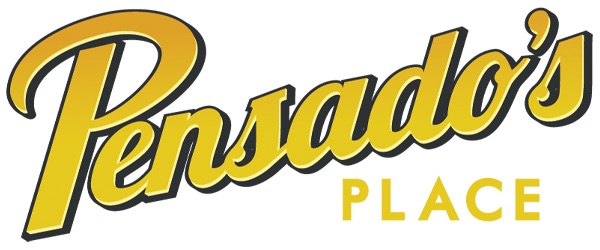
Working on Pensado's Place
While attending Art Institute in Santa Monica California, circa 2012, Narek explains he would create different bounces of tracks affecting certain frequencies. While commuting over two hours a day to class, he would listen to these mixes and quiz himself on the frequencies. So now, when Narek steps into a room, he can hear a mix and immediately know the problem frequencies and how to fix them—an undeniable skill for a professional mixer.
But it's not just ear training that helped him achieve his level. Education is one thing, but being surrounded by like-minded individuals and opportunities is another. During his time at the Art Institute, he landed a position as an engineer on a nascent podcast at the time, Pensado's Place. The show used the school's film studios and enlisted help from students for production assistance. While the web-show wasn't enjoying the popularity it basks in today, Narek attributes some of his “golden nuggets of wisdom” to pre-show conversations with legendary mixing engineer Dave Pensado as well as various high-profile interviewees such as Tom Elmhirst, Ryan Hewitt, Marcela Araica, Neff-U, Chris Lord-Alge, and others, before their appearances on the show.
How did your time on Pensado's Place help you get to where you are now?
"Pensado's place was the real turning point of how seriously I took mixing. I love the show, and I still watch the show all the time. It helped by teaching me techniques I would have never thought of. I got to listen to so many engineers, producers, and everyone else who'd come on board and share a little about their life, their technique, their mindset, efc. It was just a big platform for me to see anything from Tony Maserati’s philosophy on mixing vocals, to someone else talking about how they conceptualize a mix; do they start with vocals? With drums? And so on. The best part was hearing about every guests’ story from the beginning to their successful days. The techniques I watched from Into the Lair—that was also a game changer for me. Dave always says, ‘Take this thing that I'm doing and find out how to apply it your own way.' For example, the concept of paralleling. Of course it's used for compression but what if I parallel a distortion?"
Fast forwarding to 2020, it's no secret why Narek's ears are demanded by some of the heaviest names in music. The depth and clarity in Narek's mixes is outstanding.
Check out Joyner Lucas - "Zim Zimma". Narek is the Mixing Engineer in this production.
Speaker Proof
Narek tells the story of auditioning for a gig with a legendary producer where he was invited to the producer's studio and asked to play one of his mixes. As in most professional studios, there was a pair of common consumer-grade reference speakers, Yamaha NS-10s in this case, along with a pair of "mains", full-range professional monitors. Narek gave the mix to the engineer who played it through the studio's speakers. The producer nodded his head and really liked what he was hearing. Then he motioned to his engineer and said, "Now let's hear what it really sounds like," insinuating that the engineer should switch from the main monitors to the humble NS-10s. The engineer broke the news that the mix was already playing through the NS-10s!
Climbing the Ladder
What is it about your work that consistently gets you ‘calls back' from clients?
"For a long time I have been honing my craft—for a very long time. I'm still honing my craft. I've always had this belief—you need to be really good at what you do before you get out there. I really believe you should perfect your craft, really get your skills down and make sure you can swing before you get up to the plate. But trust me, it’s a fine line. Don’t spend 10 years just honing in your craft, it’s a balance. Just be in tune with your level and network at that level."
"What's worse than not getting a call back? The word getting out that this guy is no good—don't work with this guy. We're in a small industry, a real small circle. Don't get caught slipping."
"The last three to four years I've never said no to any invites—you never know who you are going to meet and where you're going to meet them. My entire career is based on that sentence. You might be at a party and your friend says, ‘Hey let's go to this other house,' and the head of A&R from a major label is there."
Is that what really happened?
"Yes, that is actually what happened, and once your skill is crafted, the rest is like 90% of who you know."
"When you go somewhere with someone who's respected and they introduce you to someone and say, ‘Hey this is Narek and he's a talented mix engineer.' That guy could say, ‘Really, well we have this new artist and we need the records mixed.' That wouldn't happen if I just messaged someone on social media. It's who you know and how good you are, plus the added layer of who is co-signing you and vouching for you.”
I see most of your clients are in the hip hop/R&B realm. Is that the only type of music you're mixing?
"Whatever the clients want nowadays. If rock happens to be in the top of the charts, it's rock. If it's hip hop, it's hip hop. I want to say ‘Pop' because pop means popular, but we know “Pop” to have a certain sound. I'm very comfortable with all genres considering I've grown up listening to everything from Deep Purple to Punk Rock to Heavy Metal to Tupac and Biggie, Jay Z, Eminem, Louis Armstrong, Ella Fitzgerlad, Michael Jackson, Frank Sinatra, etc."
“I feel like it's better to have 5 to 10 plugins you know like the back of your hand than a million plugins that you don't truly know.”
Virtual Instruments vs. Real Instruments
How involved are software plugins in your workflow?
"As involved as humanly possible! (Laughs) I'm 100% in the box. I've been interested in getting some outboard gear, but things are working really well for me right now and my mixes sound great so I haven't made the jump yet. I’m honestly not even quite sure if I will. Plug-ins are the most important thing because of recallability. You work on four records a day sometimes, and with all hardware, that’s just a nightmare and I don’t think it’s worth the debatable “boost” in quality you might get. Just look at all the greats who explain what it took to “recall” a session on the board. With where digital is at, I think it’s just different, no better or worse. Plus nowadays, the consumers almost prefer the sound of digital because it’s familiar.”
Do you have a massive library of plugins then?
"I used to be a huge collector of plugins, but as time passed and I experimented with many many plugins, I started learning the select few plugins that really gave me what I wanted. I feel like it's better to have 5 to 10 plugins you know like the back of your hand than a million plugins that you don't truly know. I still have a pretty big library of plugins, but it’s things I’ve used and one day might still need. There is nothing unnecessary."
What would you say the balance is of virtual instruments versus real instruments that end up on final records?
"It depends on the record. If you're a singer-songwriter or a rock band, you're probably mostly recording live instruments. If you're a hip hop, RnB, or rap artist you're probably using mostly virtual instruments. Sound selection is everything in production. Understanding the role you want a sound/instrument to play in the track is extremely important. So whatever gives you what you’re looking for, for the genre you’re creating in."
So hip hop and R&B are pretty heavy in their use of virtual instruments.
"Hip hop and R&B are like 90% software instruments. Once in a blue moon I'll get a live bass track or some other live instrument they tracked like guitars, piano, etc.. It's really the convenience of being able to bring up a sampled string ensemble or something like that—they sound so incredibly good now. The equivalent would be to book a cathedral, hire the best players, mic them with the best microphones, use the best preamps etc. We're talking tens of thousands of dollars just to get a little string part on a chorus. It's amazing how much quality has improved."
"There are things that don't transfer well virtually like guitar—I haven't come across an electric guitar plugin that you can play on a keyboard. It doesn't sound real, you know? But everything else you can pretty much get away with and possibly even get a better tone on a software instrument than a real instrument only because the real instrument requires you to have a good instrument ($200 guitar vs $15,000 guitar), a good player, a good mix, know mic placement well, to have a good studio with a good room—one of the most important parts of recording. Basically things that 99% of people don't have access to. Even if you could, you'd have to arrange it all, hire the musician, record it, go through takes, it's just so much work for a quick four-bar string build up on a pre chorus for example."
That Certain Plug-in
We were pleasantly surprised when we heard that Narek favors Overloud's amp modeling and effects plugin TH-U for mixing guitars. ILIO distributes TH-U and we've been huge supporters of its superior amp modeling since the beginning. Narek was introduced to TH-U when a colleague sent him a couple of guitar tracks that were processed through it, and he found it odd that they came over virtually "perfect". In fact, it was the first time he didn't need to ask for the raw DI signal so he could run it through his own amp effects.
Narek has a point when he talks about the convenience of using plugins—without the budget for hundreds of vintage, modern, and rare amplifiers cabinets, microphones, how could you have that much tonal freedom in a mix? To own every piece of hardware in Overloud's TH-U would cost a fortune. Plus, there's the thousands of hours needed to learn mic placement, the time to set them up, not to mention the space needed to store and actually record all this stuff. For all of us LA natives, just try telling your neighbor that you're going to be recording guitar and bass amplifiers all weekend and see what happens.
It's really no surprise that Narek Ambar chooses Overloud's TH-U for his amplification needs. With the hundreds of amplifiers, cabinets, microphones, and effects included, he can easily find the ideal tone for the wide variety of music he's mixing and producing.
What has your experience been with TH-U?
"I gotta say, I'm just blown away. I thought it was just another guitar amp plugin that sounded digital and thin, but that wasn’t the case. I love how it has so many options for amps/cabs/pedals/microphones, all ready to match together in any combination. The quality is absolutely amazing, and I haven’t heard anything on the market that can compare to it. I love the presets too; whatever it says is what it sounds like."
“The combinations are endless. With some of the other stuff, you eventually go through everything it has, and you’re lucky to find one or two amps that might sound decent enough that with some pushing and pulling with EQ and other things you might make it work. With TH-U there's no way to go through all the combos because there are so many, and they all truly sound good for the sub-genre they’re trying to fit in. TH-U is the best amp/cab modeling plugin that I’ve experienced, and it solved all my electric guitar and bass guitar problems. Period.”
"As far as other effects, flangers, phasers, delays and reverbs, it's a powerful tool to think outside the box. This unleashes so many possibilities for me for tweaking sounds and making them not sound anything like the source. The fact that it's an all-in-one plugin makes it extremely powerful. It’s definitely way more than just a guitar amp plugin."
In my experience, guitars can be tricky to mix. Depending on the type of mix you're doing, they can either take up a lot of space or be very subtle. Any production tips or tricks with guitars?
"I believe that the guitar tone is heavily influenced by the bass tone if you’re doing any kind of rock music. If you have a bass that's growling and really has some nice saturation to it, you don't have to work as hard on your guitars in terms of the low end. Finding the right balance between bass and guitar is what’s important. It’s weird to say, but in alternative rock songs, it’s almost like the guitars are the mid-high 'screaming' extension of the bass tone. Of course with other genres like adding guitars to an RnB record or hip hop record with no live bass, it’s really just about how those guitar tones react with the rest of the instruments, 808s, or whatever else is in there. The most important thing to remember is to chase a feeling, not just a 'clean sound'... Some of the best guitars in the world might not sound 'professional' but they feel absolutely amazing, and that’s what’s going to connect with the listener the most."
"TH-U is the best amp and cab modeling plugin that I’ve experienced, and it solved all my electric guitar and bass guitar problems. Period."
"Guitars seem like the loudest thing in the mix when it comes to certain rock records like Paramore records. But once you listen to it closely the whole thing is engulfed in bass and the guitars just feel like they are a mid-high extension of the bass."
So the bass lays the groundwork.
"I start with the drums, and once the drums are done and the rhythmic foundation is done, I start working on the bass tone to create the musical foundation of the record. I might go back to the drum tone a little after I blend the bass, which once again I would use TH-U for that!"
"If you saturate the bass enough and have its frequencies extend up to a nice mid-range like the 2.5k range (something that has the string aspect and the growlyness to it), then your guitars really just add to the presence greatly, that is, the brighter more aggressive tone."
Final Thoughts, Inspiration
In your career have you ever had something happen that was stressful at the time but you now laugh at?
"Too many. I remember a time driving home from Art Institute, stuck in bumper to bumper traffic for two hours and I was starting to figure out how this industry really works. The school was giving us classes on [writing] resumes saying, ‘You have to send your resume to a studio to get a job,' and I was starting to see how it actually worked. This business is not a resume/academic business. This is a ‘who you know' and ‘how good you are' business. I mean a lot of the legendary guys are high school dropouts. This fear came over me of how I don't know too many people and this school is selling us 'the dream' that was not true, and afterward I'll be over a $100k in debt and I don't know what the f**k I'm doing."
If you could pass down advice for anyone trying to be a mixer at your level, what would you say?
"Spend your time developing your ear! Never stop learning, never stop being curious, and never ever think you’re the best or you know it all, because that’s when you’ll fall. Really learn what you're doing so when you get called up to the plate, you can swing."
"You also need to develop your taste. Listen to EVERYTHING. For example someone sends you a hip hop song with rock guitars in it. How are you going to make that guitar sound like a real guitar if you are stuck listening to only one genre and haven’t really had experience listening to a million guitar tones? Build a huge library of references in your head. It's like a chef that's only ever made Italian food. How are they going to make a Chinese inspired dish? One of my all time favorite sayings is from Dave Pensado; ‘I can always teach someone how to get a good vocal sound, but I cannot teach them what a good vocal sound is."
"Develop and nurture relationships! Cannot stress how important that is. Most of the people I've worked with have become friends. Music is personal and emotional. You’re being trusted to work on people’s creations. As 'transactional' as it may seem sometimes, at the end, your client hears your mix and get’s a feeling. Go above and beyond, not because you’re getting paid, but because your name is on it. Give as much value as possible in your relationships. I remember hearing one of my favorite mixers say one time, 'If your heart isn’t in it, don’t do it.' I know sometimes we need to accept work to put food on the table, but conceptually, we all want to arrive at a place where we work on the music we love with people we respect because this all about how passionate you are about what you do. If there is no passion, you might as well switch careers now."
Look for Narek Ambar's name on many high profile projects to come, and keep your ear out for some first-class amp modeling on today’s current hits. Chances are, you're listening to Overloud's TH-U. You can learn more about Narek, the artists he's currently working with, or reach out for one-on-one mixing tips at www.narekambar.com.

